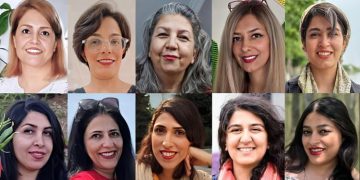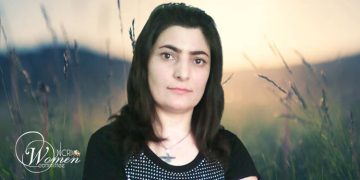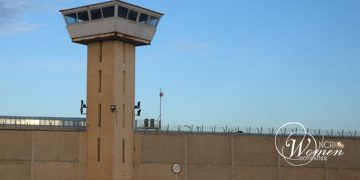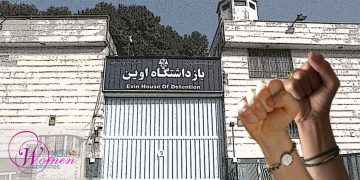The sister of death-row political prisoner in Iran, Akbar Daneshvarkar (Shahrokh), has released an emotional video appeal demanding urgent action to save her brother and others facing execution by the clerical regime.
She revealed that since August 6, her family has had no information about the fate of Akbar Daneshvarkar. “We have had no news from Shahrokh since that date, and other families are the same,” she said. “My father is gravely ill, and my mother suffered a heart attack after hearing her son had disappeared in prison. Even hearing her son’s voice has been denied to her.”
Akbar Daneshvarkar was among five political prisoners violently transferred from Fashafouyeh (Greater Tehran Pentitentiary) to Qezel Hesar Prison in Karaj. The men were forcibly separated from other political detainees who were being transferred to Evin Prison, a move condemned as a deliberate tactic to intimidate, cut off communication, and heighten pressure ahead of possible executions.
Shahrokh Daneshvarkar, 58, is a civil engineer and was arrested in January 2024.
Condemning the cruelty of the regime, she declared:
“This is a terrible injustice, punishing our children so severely for crimes they never committed. They are educated, compassionate people whose only concern is the freedom and well-being of our homeland. And for that, they are imprisoned and sentenced to death.”
Her testimony highlights the dual torment inflicted by the regime: prisoners endure torture and abuse inside prisons, while their families are subjected to psychological torment outside. “Our loved ones suffer behind bars, and we, their families, are tortured in another way. Please, be our voice,” she pleaded.
She appealed directly to the Iranian people and the international community:
“Today it is my turn. Tomorrow it may be yours. If you remain silent, this injustice will continue.”
Her call comes amid a surge of executions in Iran. On July 27, political prisoners Behrouz Ehsani and Mehdi Hassani were executed in Qezel Hesar prison, despite widespread domestic and international outrage. Their execution coincided with the anniversary of the 1988 massacre of political prisoners, a chilling reminder of the regime’s four decades of impunity.
The regime has carried out hundreds of executions since the start of the year, targeting not only ordinary prisoners but also protesters and political activists. The wave of killings has been condemned as part of a systematic campaign of terror to silence dissent.
The UN Special Rapporteur on Iran, Javaid Rehman, has warned that such actions may amount to crimes against humanity. He has stressed that the world must hold Tehran accountable for both its current atrocities and past crimes, including the mass executions of 1988, which he has described as genocide.
As the regime intensifies repression, the sister of Shahrokh Daneshvarkar insists that silence is complicity. Her appeal echoes the voices of countless families of political prisoners: a demand for solidarity, justice, and urgent international action to stop the executions and end the cycle of impunity in Iran.
























